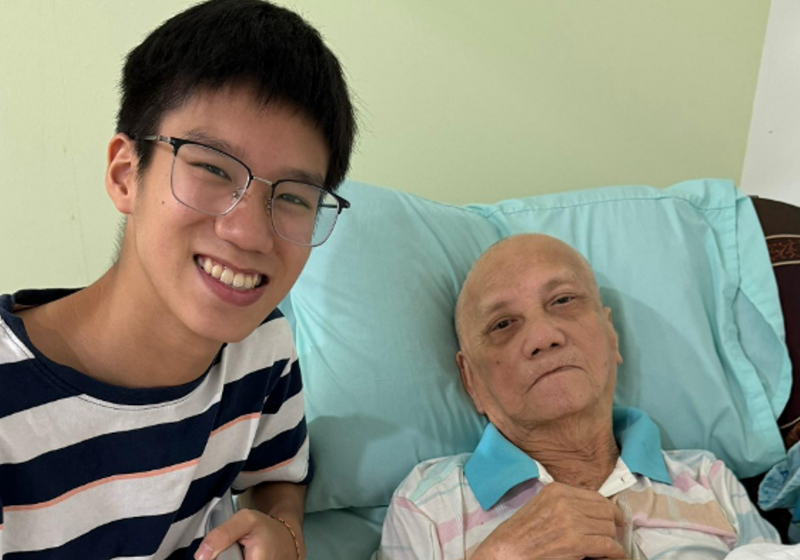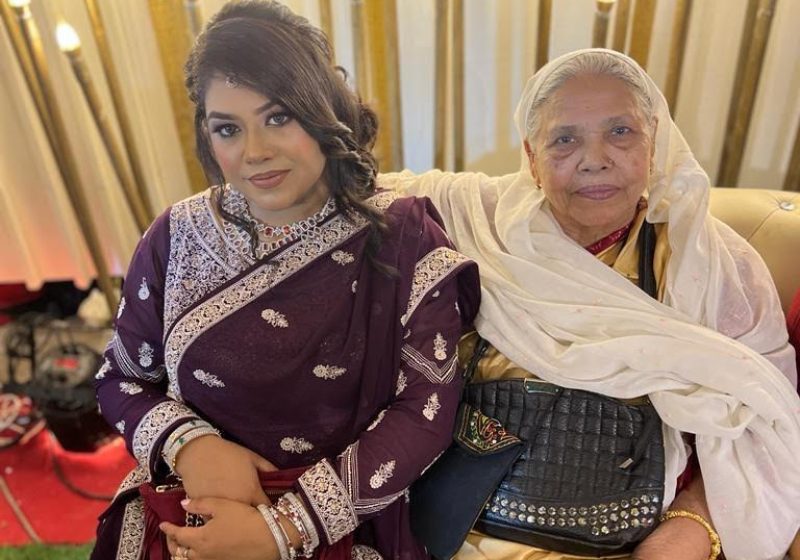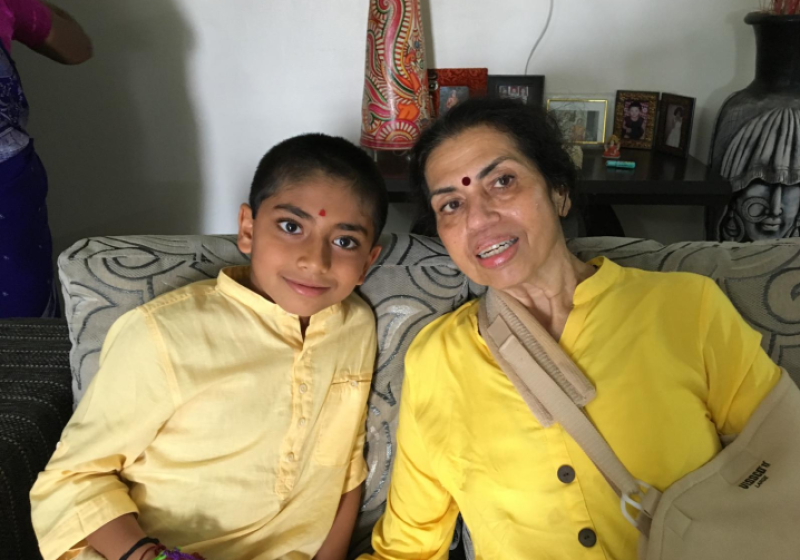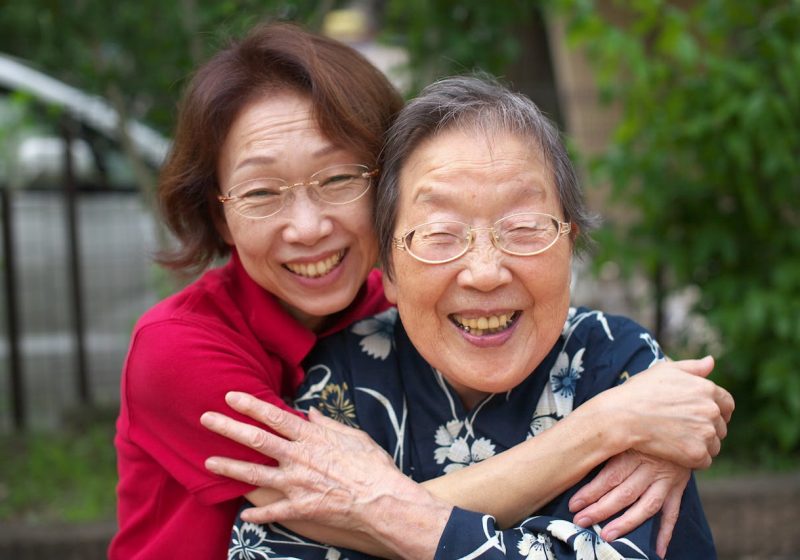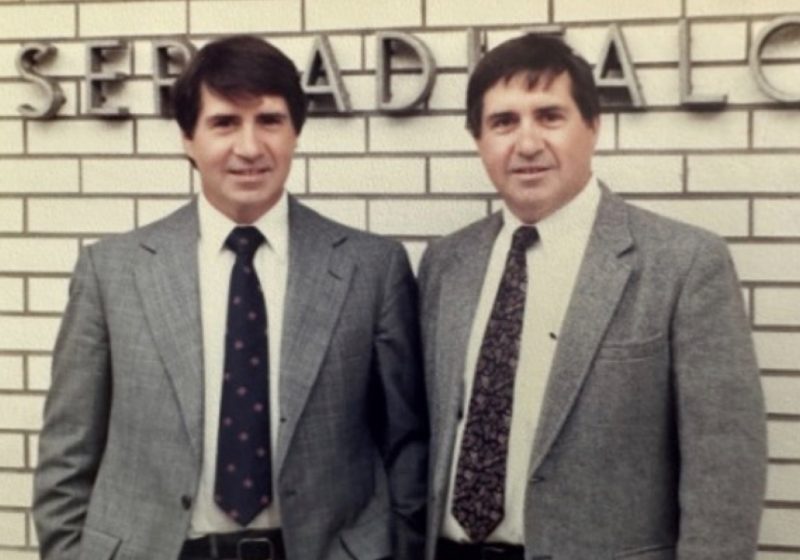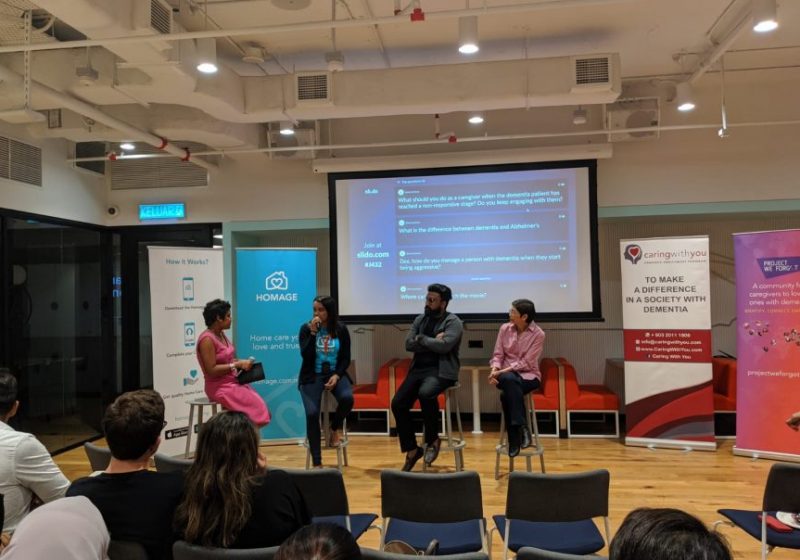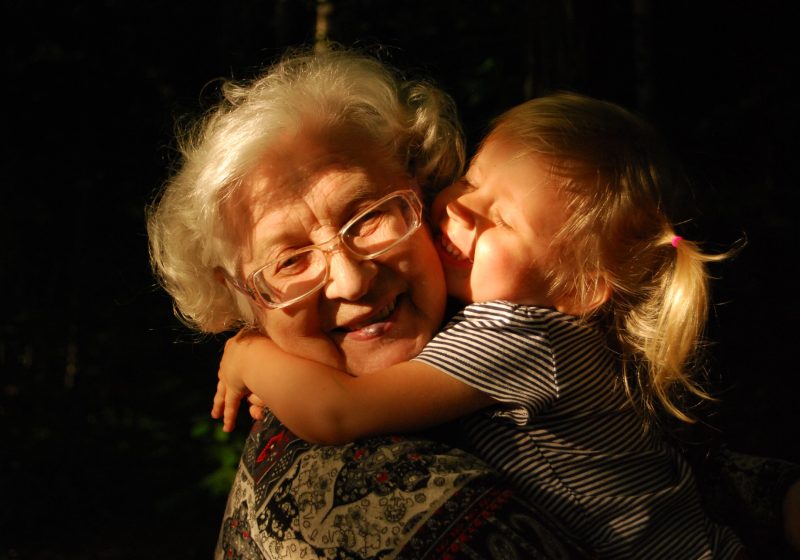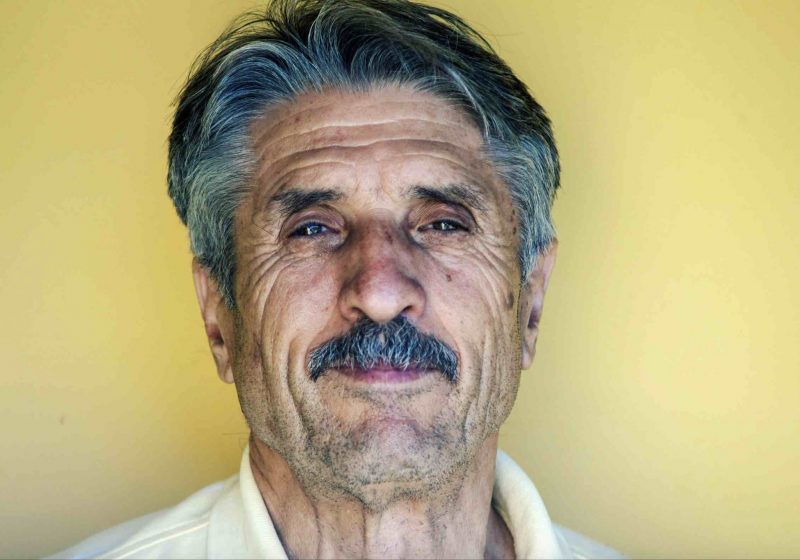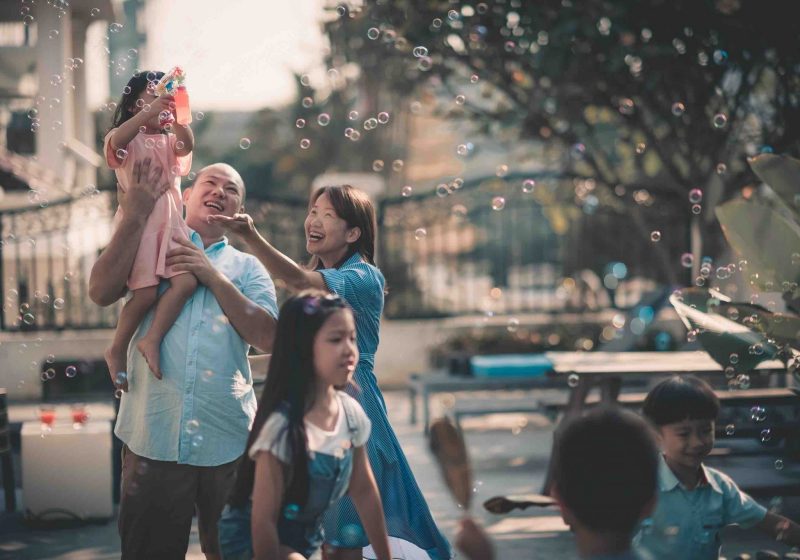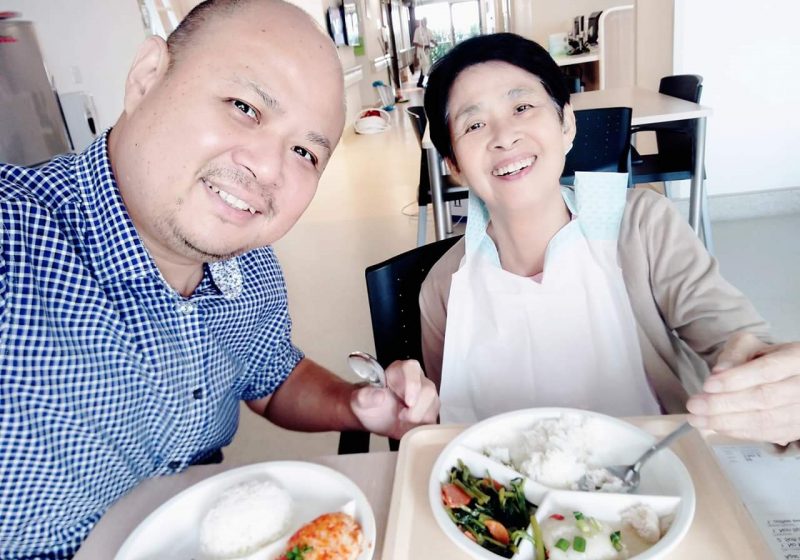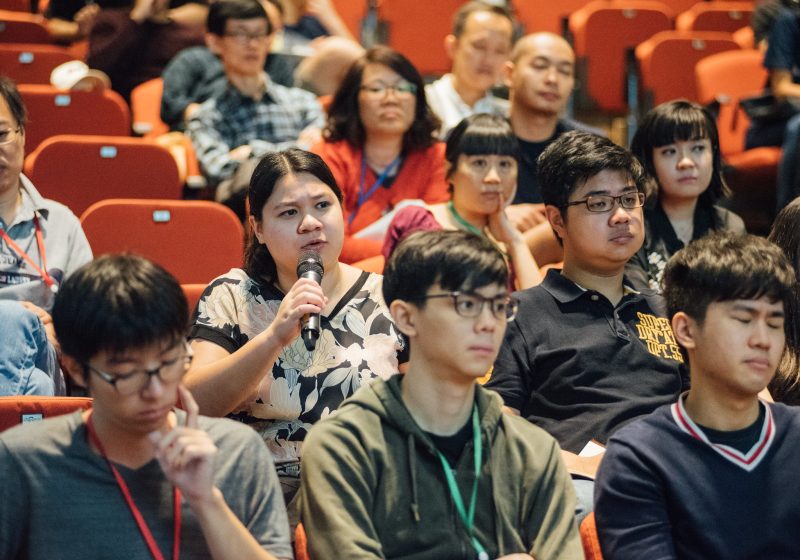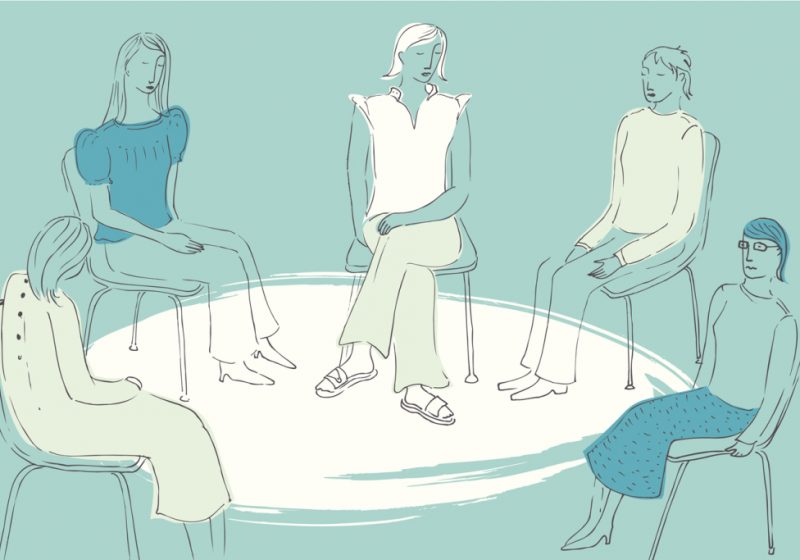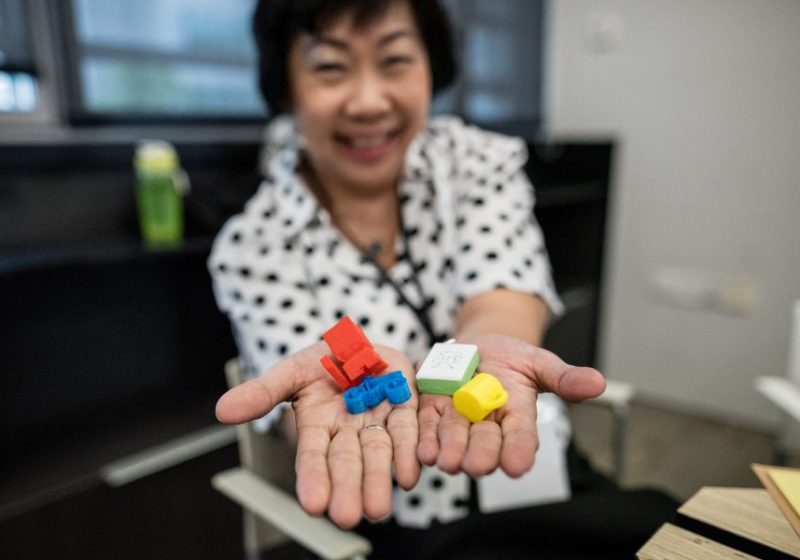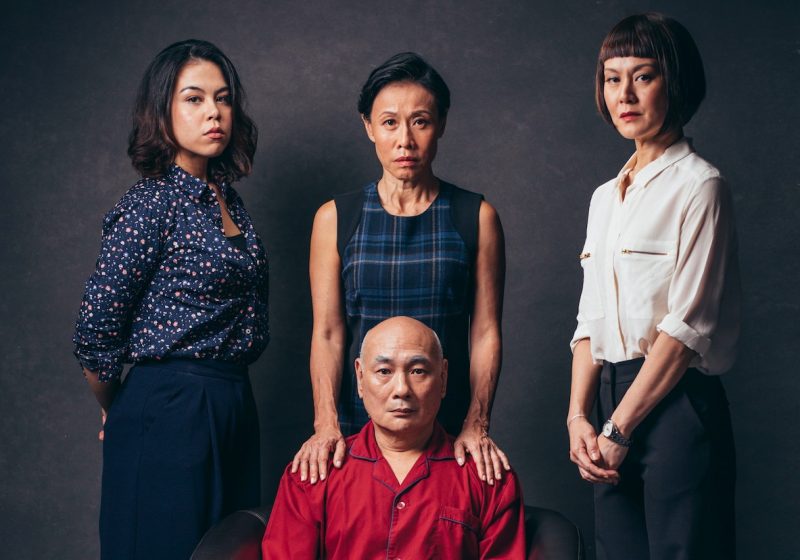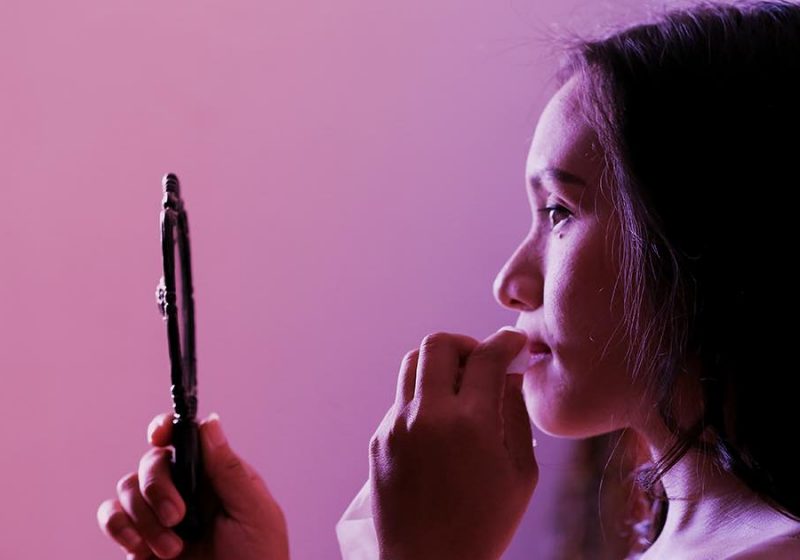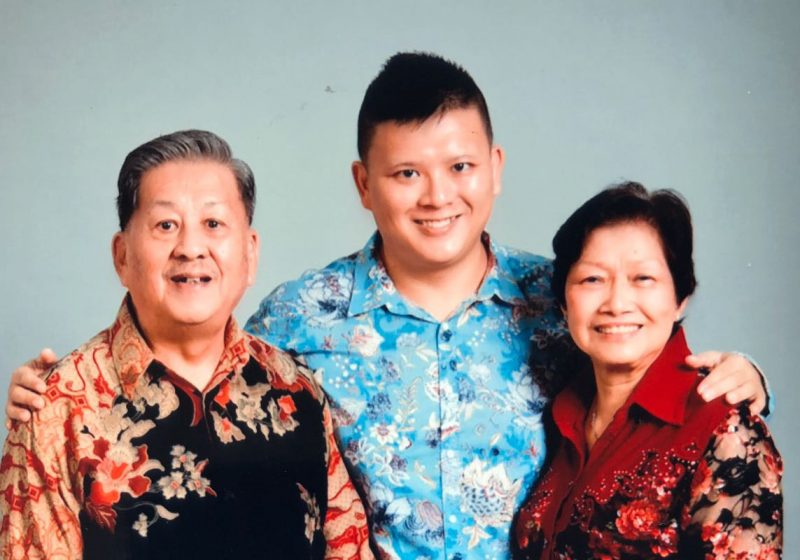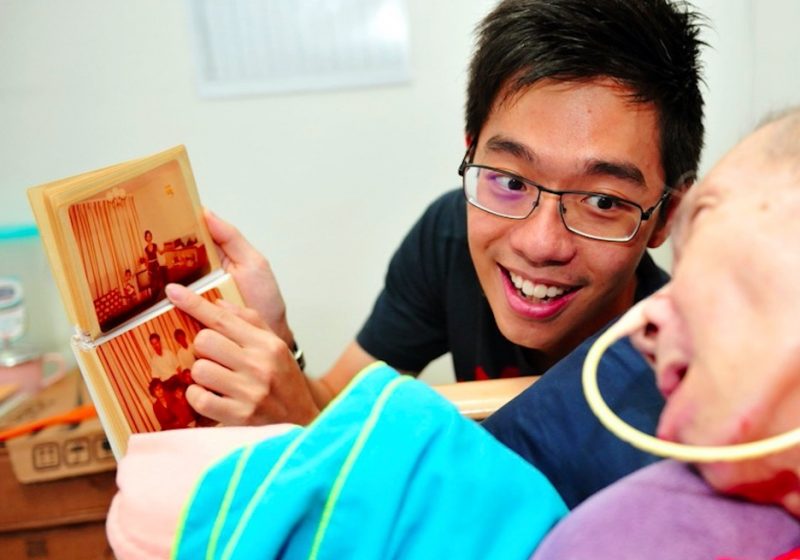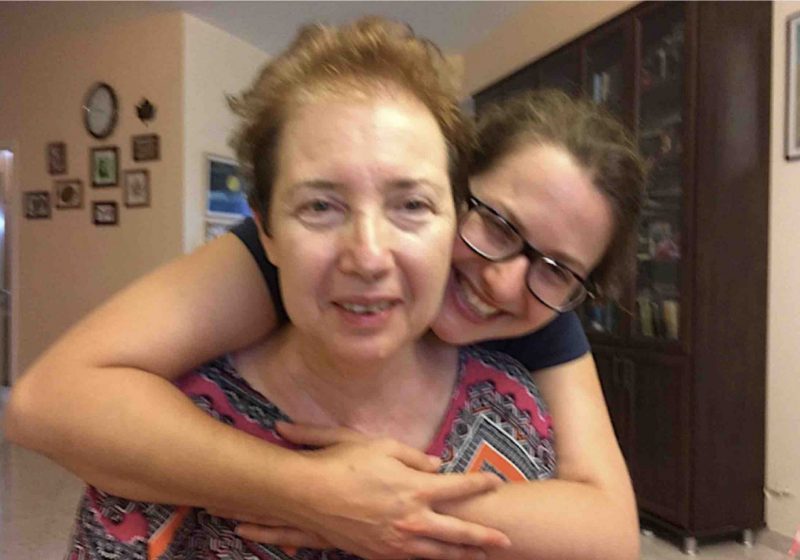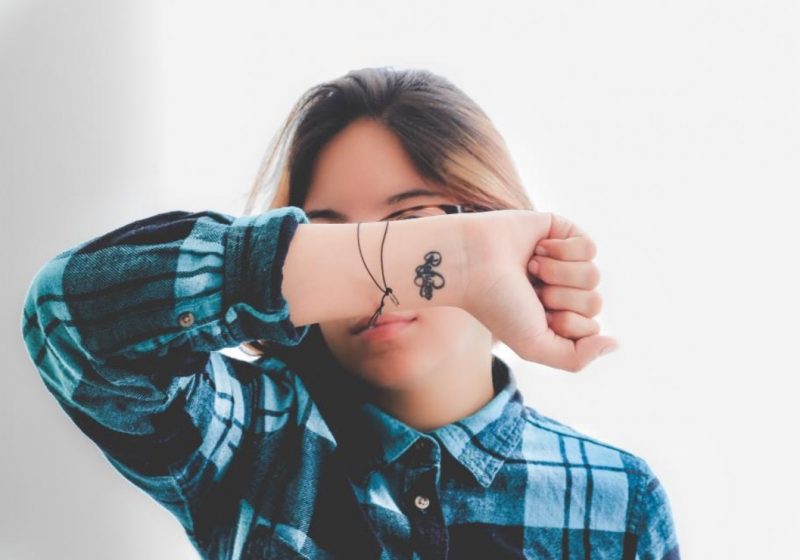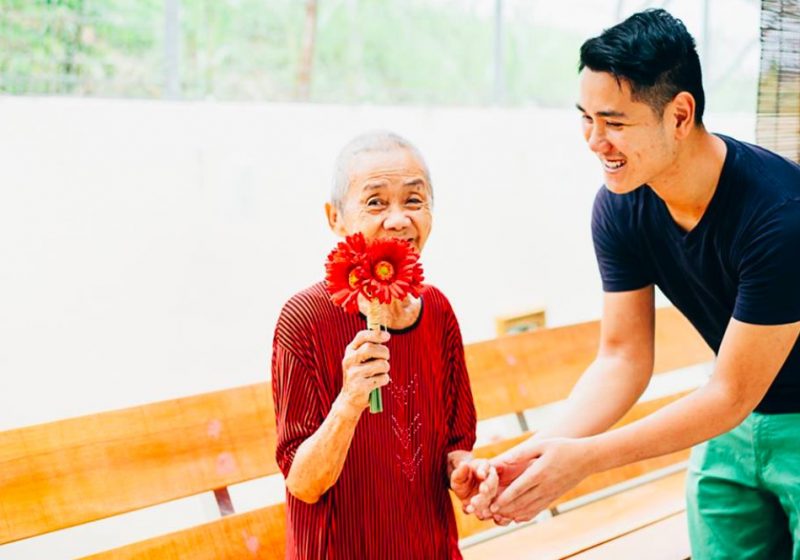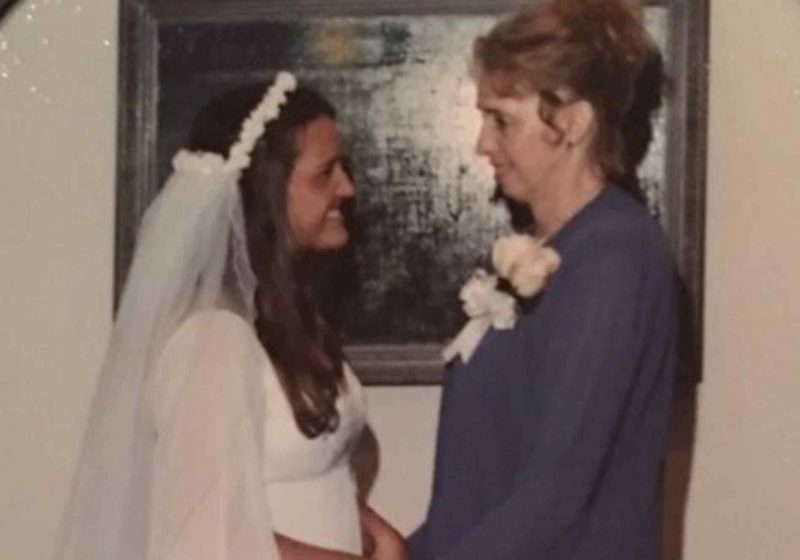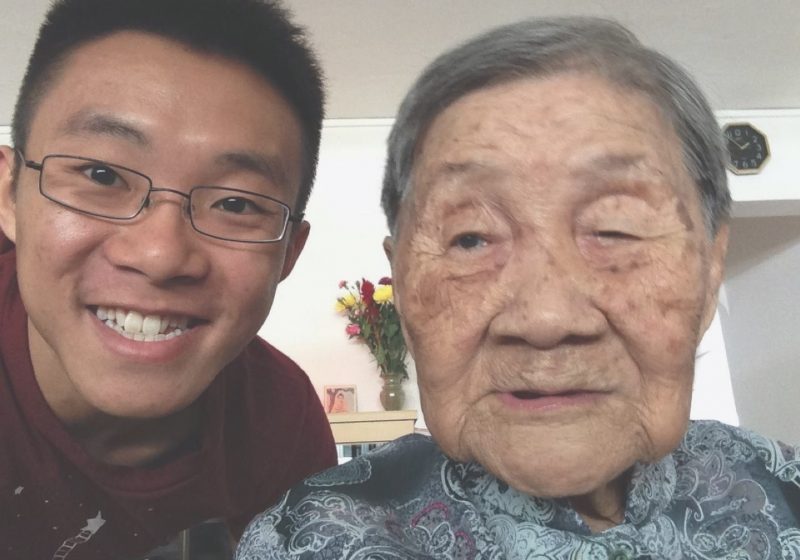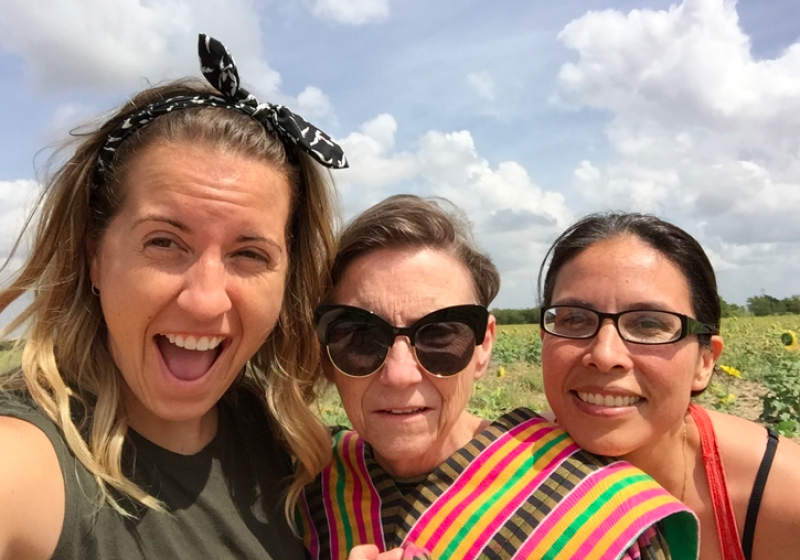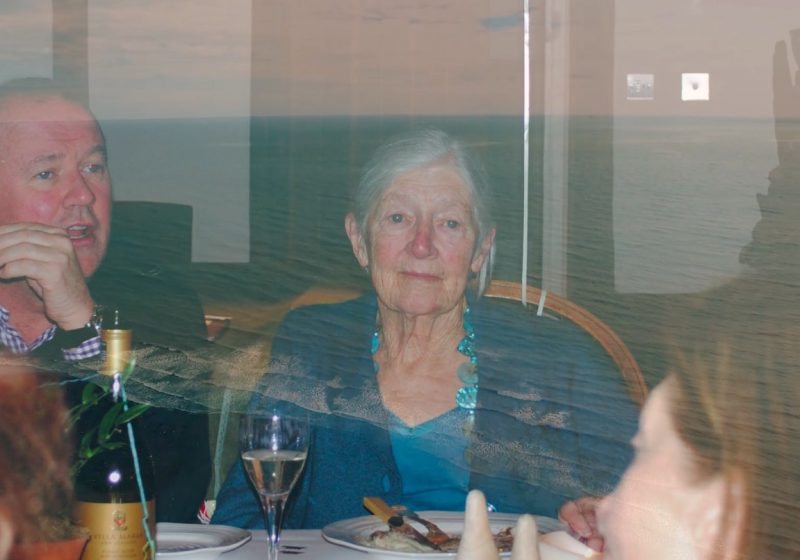Daniel Lim was 30 years old, and building a career for himself in Singapore. Everything changed when his father was diagnosed with dementia. Here, he shares his journey towards recovering his emotional wellbeing and managing the pressures of work and caregiving.
By Daniel Lim

“How do you even keep your sanity in check?”
“How do you find that balance?”
Those are the usual questions people ask me when I share my personal journey in juggling a rewarding career with caregiving.
Even though caregivers are at increased risk for stress-related disorders, depression, and a variety of other unknown complexities – I am able to manage, thanks to the support from my employers and colleagues. The effects of caregiving on a person are really diverse and complex. Caring for a person with dementia is more stressful than many would realise and think.
What I do now is to ask for help, and actively seek out for it. It’s ok to say “I can’t handle it anymore”, which is what I do these days. I also set time aside to care for my emotional well being and state of mind.
Self Care: Remember to mind yourself
When I first became my parents’ caregiver in 2009, I was under huge levels of stress due to our difficult family and financial situations. I was highly frustrated and irritable. Small, little things made my mood really foul. I also began to socially isolate myself, started binge eating and became physically out of shape.
Today, although I am still faced with very real challenges on a daily basis, I try to balance caregiving with other demands, including having a career and maintaining relationships. Things began to improve after I attended a Mindfulness programme to help reframe my thoughts, my intent, my personal focus, and my ability to be in the present.
That helped me with my social integration too. I started meeting new people and understanding that I am not alone in this journey. There are others like me out there, who are facing similar situations. Mindfulness has helped me realise that caregivers can still enjoy joyous opportunities in life. We can still experience positive feelings of social bonding, spiritual and personal growth, faith, and a sense of accomplishment and achievement.
I further embarked on a journey of Reiki healing in 2016. I am still a student on this journey. With Reiki healing, I learn to practice how energy healing helps to uplift my emotional well-being. Every time I go to class, I leave feeling lighter (metaphorically). I feel more positive and ready to take on the world’s problems.
Physically, I sign up for runs and progressively cover further distances with each run. I have yet to achieve a full marathon, but I am glad that I did complete a 32km run in 2017. I also discovered that I enjoy the peacefulness of water very much. I get a level of therapeutic satisfaction when I swim in the pool. In the water, I can listen to my own thoughts, hear my own silent voice, and try to reframe my thoughts and feelings. It’s also the only time I get to be away from tech gadgets.
Create Opportunities for Social Bonding
As a caregiver, there is no denying that our happiness is affected by the quality of life and care for our loved ones. For me, this includes the relationship between my Dad (who has dementia), my Mum (who had cancer), and me (their caregiver). We discovered that my Dad likes to sing. He would do so at any opportunity, and given that he is living with dementia, this has created a beautiful situation for all of us in the family.
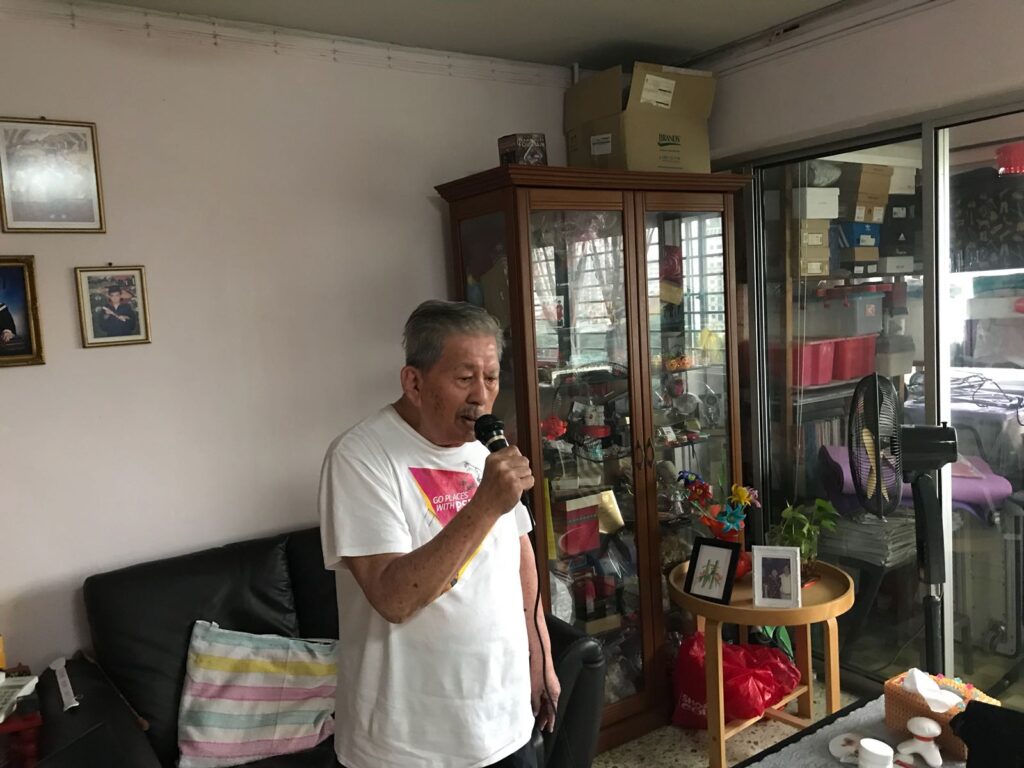
He loves singing my Mum’s favourite song (“It’s a Beautiful Morning” by Carroll Roberson) to her daily. Maybe she doesn’t quite like this anymore, now that she hears my Dad sing this every single morning! But the point is, to make the best of this – I have started karaoke weekends for my dad and his siblings.
Every weekend, my relatives come over, and we would all have fun singing or crowing into the microphone with my Dad. Everyone has a good laugh. As the old sayings go, “laughter is the best medicine”, and “music tames even the savage beast”. Personally, it makes me happy as a caregiver, to see my dad having such a good time.
By enabling my Dad to do the things he wants to do, it gives him a better quality of life, returns his dignity, and gives me the time and peace of mind to do more with my life. This happy development has enabled us to kill two birds with one stone (not literally).
“Pluck the low hanging fruits, and enjoy the happiness of achieving baby wins”.
Remember that you are not alone
As such, my stress levels have decreased tremendously. And I hope my story will help other caregivers like myself, who are thinking of how to balance work with caregiving. While I know that my Dad’s condition will worsen over time, I also know that what I can do is to focus on the love that brought us together and strengthen the support we have for each other. I do my best to do what I can do for my family.
As caregivers, what we can do for ourselves is to be positive and enjoy every day that comes. There will be days when daily challenges and issues may seem to outweigh the rewards of our love by a thousandfold. However, being realistic about it, and acknowledging how much we have done for our loved ones can help us to see the other amazing accomplishments that outnumber those tough days.
So even in the darkest days, when it seems like nothing is going right, we must remember that we are not alone. Pluck the low hanging fruits, and enjoy the happiness of achieving baby wins. For me, I practice Kaizen with a little win each day – and remember the little improvements made for my Dad’s care, my Mum’s happiness, and my own life as a person.


